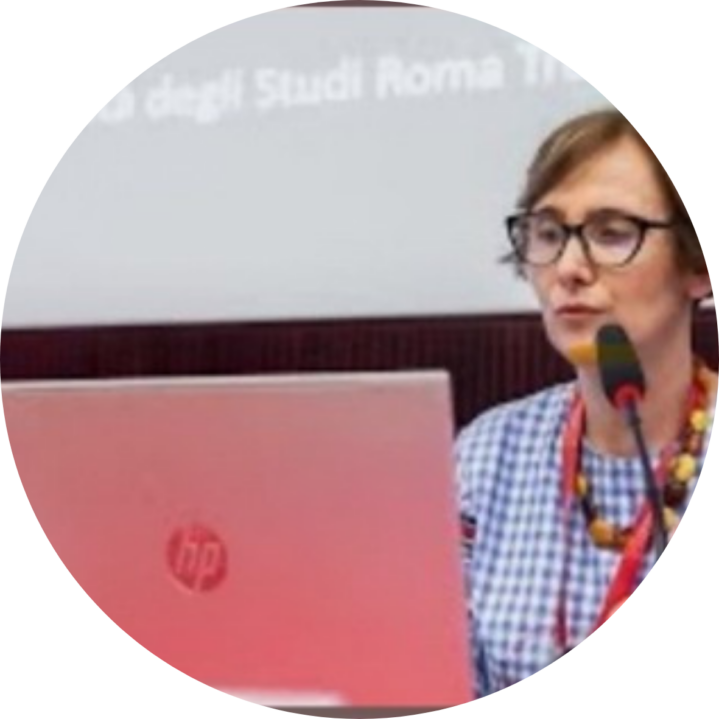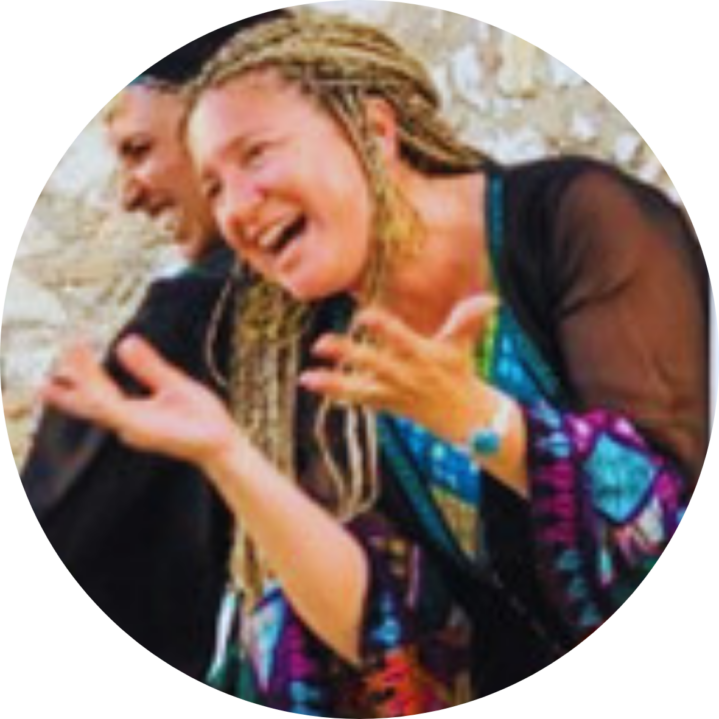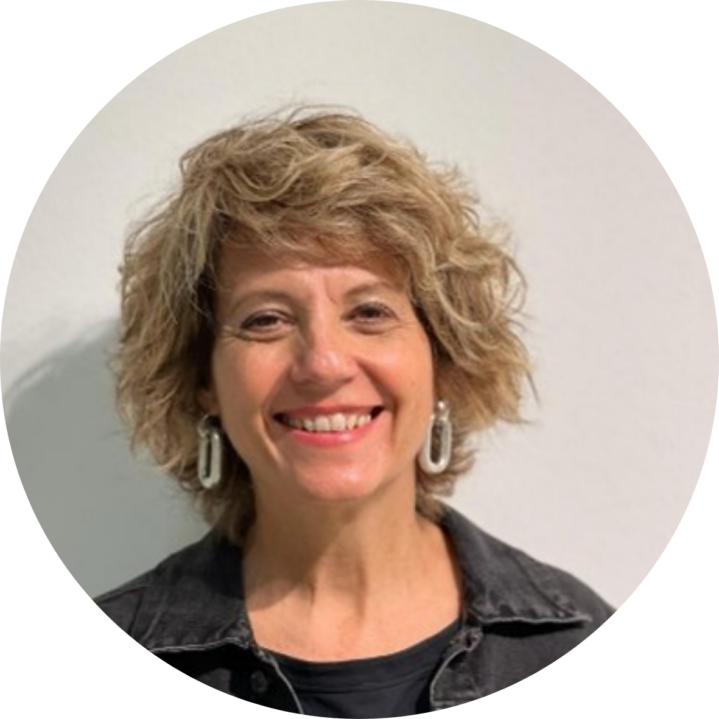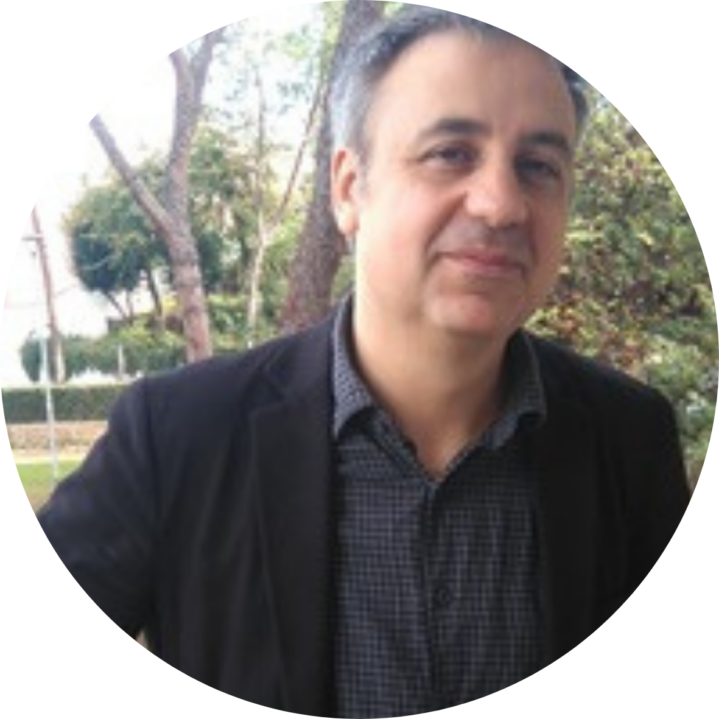Head of the Master
Carla Noce

Carla Noce, PhD, is Full Professor of the History of Christianity at Roma Tre University. Her research has mainly focused on the history of exegesis, ancient translations, religious symbolic language, and norms and practices in early Christianity. She is the author of Vestis varia. L’immagine della veste nell’opera di Origene (The image of the garnment in the wok of Origene)(2002), co-author (with I. de Francesco and B. Artioli) of Il digiuno nella Chiesa antica (Fasting in early Christianity) (2009), and has produced a translation with commentary of Origen’s Homilies on Leviticus (2020–2024). She co-edited, with F. Carta and R. Michetti, Sacra Silva. Bosco e religione tra tarda antichità e medioevo (Forest and Religion between Late Antiquity and the Middle Ages) (2024), and with V. Berti and E. Colombi, Translation Dynamics in Early Christian Literature (2024). Since the 2021/2022 academic year, she has served as Coordinator of the Master’s Degree Program LM-64 Religions, Cultures, History, and as academic advisor for the double degree programs in Religion in the Public Sphere / Religions, Cultures, History (Hannover–Roma Tre) and Religions, Cultures, History / Théologie catholique (University of Strasbourg–Roma Tre).
Scientific advisory board
Paola Balbi

Graduated actress from the National Academy of Dramatic Arts Silvio d’Amico (ANAD) and specialized in Shakespeare, Paola is an acclaimed professional storyteller and co-artistic director- together with Davide Bardi- of the Raccontamiunastoria Storytelling Company, leading organization in Italy in the field of Performing Storytelling and Professional training in the field of Storytelling. Paola is also artistic director on a regular base of countless of Stortyelling events, seasons, international projects, and festivals both in Italy and abroad, including the International Storytelling Festivals of Rome and Bolzano, and "Tales on the Island" in the United Arab Emirates. She is a member of the Board of FEST – Federation for European Storytelling – with the role of expert in training within the field of performative storytelling. Paola is one of the most prominent figures in Europe within the cultural Movement of the Storytelling and was the undisputed pioneer of this Art in Italy. In the past 20 years Paola has trained a whole new generation of professional storytellers.
She designed and directed the first puilote Storytelling course at the National Academy of Dramatic Arts Silvio D’amico in 2019. Her repertoire ranges from classical mythology to biblical stories, from the Decameron to Italian and International folkatales and she is actively involved on a regolar base in the reearch and collection of stories from oral literature andcollective memory.
Since 2016 Paola shares her time and work between rome and Dubai and have become an expert of the Gulf Arab tradition, collecting a rare archive of stories from live interviews with the elders.
Davide Bardi

Davide Bardi is an actor, voice over artist, director, musician, and professional trilingual storyteller (Italian, French, English), active since 2009 both in Italy and on the international scene. A versatile and multifaceted artist, he has built his career around storytelling in all its forms, from theater to cinema, from oral narration to voice-over work. Since 2010, he has shared the artistic direction of the storytelling company Raccontamiunastoria and major international festivals with Paola Balbi, including the Storytelling Festivals of Rome and Bolzano, and "Tales on the Island" in the United Arab Emirates. He was a member of the Executive Committee of FEST (Federation for European Storytelling) from 2013 to 2016. Together with Paola Balbi, he created and developed the “Raccontamiunastoria” method, a multi-level training program now internationally recognized. Alongside his performing activities, he regularly conducts workshops and storytelling courses for actors, voice over artists , teachers, performers, and tour guides, helping them to enhance their narrative and communication skills. He leads workshops and educational programs at festivals, universities, and cultural and educational institutions. In 2019, he was a Storytelling coach at National Academy of Dramatic Arts “Silvio D’Amico” in Rome. His storytelling repertoire ranges from classical mythology to folk traditions, including biblical stories and from Arab and Sufi cultures. He specializes in a highly impactful form of storytelling accompanied by live music, which he performs himself using various instruments, in particular percussion and stringed instruments.
Giulia Bordi

Giulia Bordi is an Associate Professor of Medieval Art History at Roma Tre University. Her research focuses on medieval mural painting and the interaction processes between architecture, liturgical furnishings, and pictorial decoration in Rome and Asia Minor between the 4th and 14th centuries. She also studies and experiments with digital visualization and documentation systems for medieval monuments, as well as innovative methods for scientific dissemination. She is involved in several national and international research projects, including: EHEM – Enhancement of Heritage Experiences: the Middle Ages. Digital Layered Models of Architecture and Mural Paintings over Time (Horizon 2020 - JPICH-0127); PRIN 2022 PNRR - FRAME - Fragment and Memory. Virtual Space and Murals in the Monastery of San Vincenzo al Volturno (8th - 11th century); Changes - SPOKE 8 - Sustainability and Resilience of Tangible Cultural Heritage - Images and Places of Medieval TCH in Rome: Digital Experiences; PRIN 2002 - Rome and the Others (300-1300). Foreigners in the City between Conflicts and Integration. She has published numerous contributions on medieval painting in Rome, Italy, and Asia Minor.
Matteo Braconi

Matteo Braconi is Associate Professor of Christian and Late Antique Archaeology at Roma Tre University. His research focuses on the earliest Christian figurative expressions, the later decorative programs of Roman places of worship—dating from the 4th to the 5th century—and the self-representational strategies adopted by Late Antique elites to visually convey their social identity. He has directed research projects and archaeological excavations at various catacomb sites, including the cemeteries of Priscilla and Commodilla in Rome, as well as the hypogea of Santa Mustiola and Santa Caterina in Chiusi. He is a member of the Pontifical Commission for Sacred Archaeology and serves as Regional Inspector for the catacombs of Umbria and Tuscany within the same institution. He is also part of the scientific committee of the journal Sibrium and the Center for Studies and Documentation on Paulinus of Nola. He is a member of the Doctoral Board in History, Territory and Cultural Heritage, and from the 2025/2026 academic year, he will serve as coordinator of the Master's Degree in Archaeology.
Alberto D'anna

Alberto D’Anna, PhD, is a professor at Roma Tre University. He received his academic training in Rome (Sapienza) and Geneva. His research focuses on the literature and history of early Christianity, Greek apologetics, heresiology, and Christian apocrypha. He published the edition of About the Resurrection attributed to Pseudo-Justin (2001), followed by a volume on the earliest Christian texts concerning the “resurrection of the flesh” (2009). He co-edited, with C. Zamagni, the volume Christianities in Antiquity (2007); with E. Valeriani, The Last Enemy of God. The Role of the Antichrist in Early and Late Antique Christianity (2013); and with Ch. Guignard and I. Ponti, The Construction and Reconstruction of Memories and Figures of Early Christianity (2024). He is currently preparing the critical edition of the Acta Petri et Pauli for the Corpus Christianorum series.
Maurizio Fiorilla

Full Professor of Italian Literary Philology at the Department of Humanities of Roma Tre University. He is a member of the faculty of the PhD Program in “Civilizations and Literary-Linguistic Cultures from Antiquity to the Modern Age” (which he coordinated from 2021 to 2023). He is also the coordinator of the Master's Degree Program in Italian Studies (LM-14) and the scientific director of the Digital Humanities Lab for Italian Studies.
His research has focused on the sources of Petrarch’s and Boccaccio’s works, particularly the marginalia and reading notes left by the two authors in the texts of classical and medieval writers—an area on which he has published two monographs and several scholarly articles. He has studied the manuscript tradition of the Decameron (editing two different critical editions) and has worked extensively on Dante, with publications on the Convivio, the sources and early commentaries of the Commedia. He has also edited a new annotated edition of early Dante biographies written between the 14th and 16th centuries.
He is one of the editors of the volumes Le Origini e il Trecento within the series Autografi dei letterati italiani, and one of the scientific coordinators of the digital portal ALI – Autografi dei letterati italiani online. He serves as co-editor of the scholarly journals L’Ellisse. Studi storici di Letteratura italiana and Studi sul Boccaccio, and is Vice President and member of the Executive Board of the Ente Nazionale Boccaccio.
Prof. Fiorilla has also written and hosted cultural programs for Rai Radio 3 (including series on the Decameron, the Commedia, and Orlando Furioso), and served as script consultant for Pupi Avati’s film Dante. He is the scientific coordinator of the University Dante Festival.

